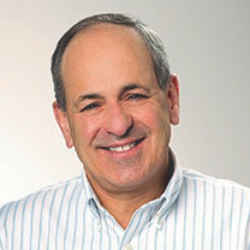2023 Candidate Peter Groffman

Peter Groffman
Professor
City University of New York
Candidate for: ESA President-Elect
I am an Ecosystem Ecologist with a focus on nutrient cycling and biogeochemical cycles in a wide range of terrestrial systems; agriculture, forests, wetlands, prairies, deserts, cities. My academic journey started with a B.A. in Environmental Science from the University of Virginia (1980) followed by a Ph.D. in Ecology at the University of Georgia (1984) and postdoctoral work at Michigan State University (1984 – 1987). I was an Assistant Professor at the University of Rhode Island (1987 – 1991), Assistant, Associate, Senior Scientist at the Cary Institute of Ecosystem Studies (1992 – 2015), and currently am a Professor at the City University of New York Advanced Science Research Center and the Earth and Environmental Sciences Program at the Graduate Center, and Brooklyn College Department of Earth and Environmental Sciences. I am also a Senior Research Fellow at the Cary Institute of Ecosystem Studies. My current research focuses on climate effects on ecosystem biogeochemical processes related to carbon and nitrogen cycles. Service activities include Chair of the ESA Soil Ecology (1997 – 2000) and Biogeosciences (2010 – 2012) sections, ESA Awards Committee (2001 – 2007), Rapid Response Team (2009 – current), and Editorial Board Ecology (1999 – 2009). Outside of ESA, service includes Deputy Director of the North America regional chapter of the International Nitrogen Initiative (INI) (2020 – 2023), Chair, U.S. Long-Term Ecological Research Network Science Council (2014 – 2019), Member, National Ecological Observatory Network (NEON) Scientific Steering Committee (2016 – 2022), Member, Steering Committee of the U.S. Critical Zone Observatory network (2014 – 2019). I was a convening Lead Author for the 2013 U.S. National Climate Assessment Chapter on Ecosystems, Biodiversity and Ecosystem Services, snf a lead author for the Second (Wetlands) and Third (North America) Assessment Reports of the Intergovernmental Program on Climate Change (IPCC).
What interests, experience or skills would you bring to this position?
Almost all of my research, teaching and scientific outreach experience has been multidisciplinary. This approach has been based on the realization that the environmental challenges faced by society require collaborative work across disciplines. I look forward to applying this ethic as President of ESA, building on my experience leading the Science Council of the U.S. National Science Foundation Long Term Ecological Research (LTER) network from 2015 – 2019. In that capacity, I led efforts to develop synergies with other national and international research efforts such as the National Ecological Observatory Network (NEON), the Critical Zone Observatory (CZO) network and the International LTER network. The ESA is an ideal nexus for developing these synergies to help us address our most pressing challenges. Further, I maintain that Ecology has been enormously successful in addressing these challenges over the past 50 – 60 years. Across much of the world, the air and the water are cleaner, endangered species and habitats have been identified, and sometimes protected and recovered (bald eagles). Ecologists, working with scientists from other disciplines in the Environmental Sciences have played an important role in these successes and we are poised to address the many current and emerging challenges that we still face.
How would you support ESA’s mission? How would you plan to promote DEIJ in ESA membership and activities if elected? As a white, able-bodied, highly educated man, I work hard recognize my many privileges and to avoid using them to center my identity, power, and needs. This effort has been greatly helped by my position at the City University of New York (CUNY), one of the most diverse and progressive academic institutions in the world. My CUNY teaching appointment is at Brooklyn College, with students from over 140 countries speaking more than 94 languages. And these are wonderful students. Sitting on the main quad at Brooklyn College on a nice day when classes are changing makes me excited to add the identifies of these students to my much more common identity in the ESA. This is not an easy task as these students do not necessarily “see themselves” in many academic institutions and positions. But there is much to be gained from including these students and their identities; for them, for science, and for society. Indeed, I argue that much of the ability (and success) of Ecologists to contribute to the solution of pressing environmental problems derives from our ability to improve diversity, equity and inclusion in our discipline. These efforts must continue.